Nissan hybrids and PHEVs heading to the US, three-row electric SUV due in 2028

Nissan on Monday unveiled a roadmap that will see the automaker shift back to hybrid and plug-in hybrids for the U.S., as well as higher volume and lower-cost electric vehicles, with the goal of reducing the cost of next-generation electric vehicles by 30% .
Therefore, by 2030 they will cost as much or even less than combustion models.
Under a new business plan called “The Arc,” the automaker intends to regain some of its early market leadership in electric vehicles and achieve that cost reduction in its next-generation electric vehicles through grouped “family” development using common upper body parts and modularized powertrains . Models using this approach will enter production in 2027.
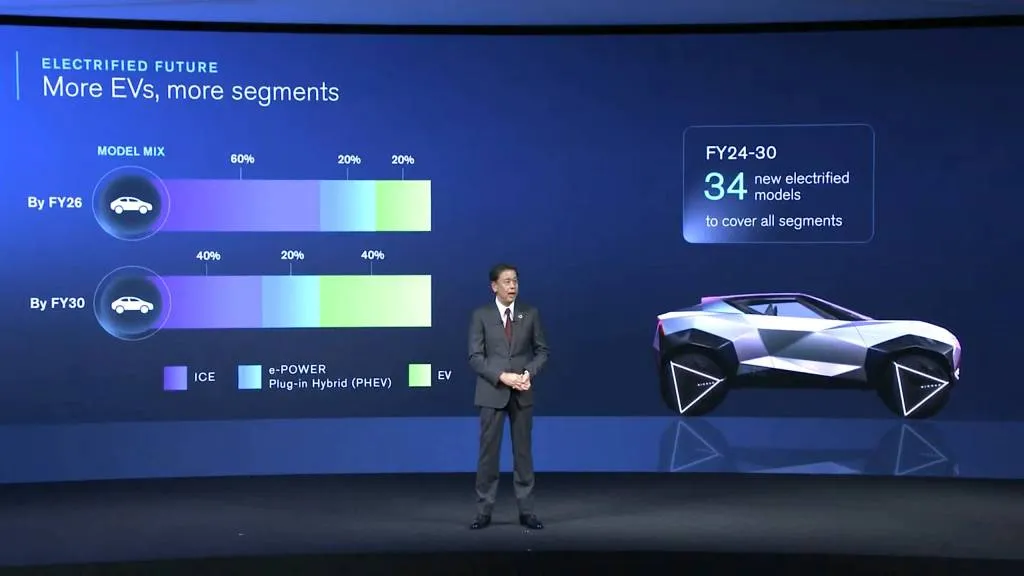
Nissan EV hybrid and EV plans as of March 2024
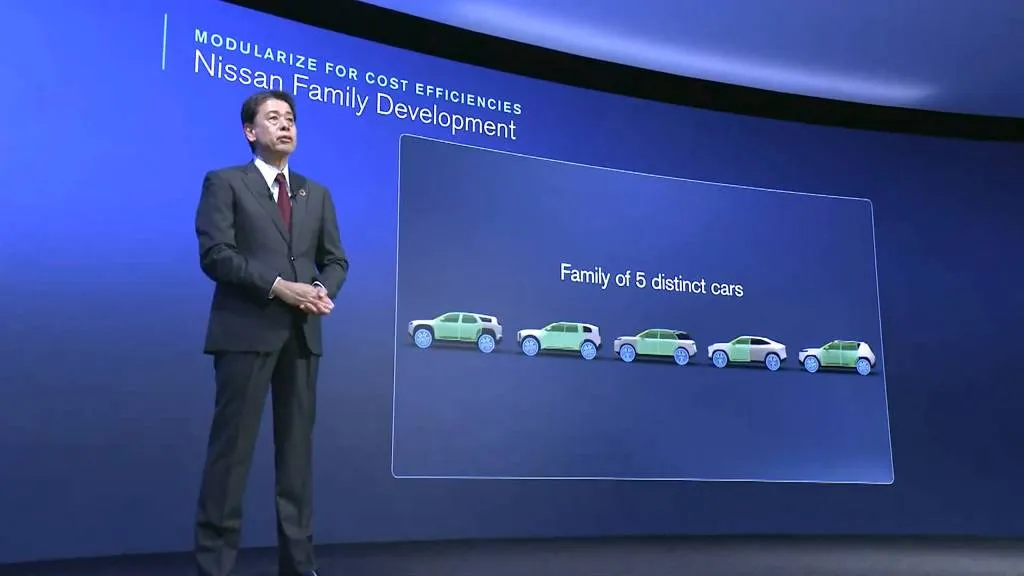
Nissan is planning a family of vehicles with the same common upper body components
On a market basis, it will “follow a tailored regional strategy and prepare for an accelerated transition to electric vehicles, supported by a balanced product portfolio of electric vehicles and internal combustion engines,” the automaker said. Sources have confirmed this to Green Car Reports two larger US electric vehicles The project planned in Mississippi at this time will take this strategy into account.
Multiple hybrids and plug-in hybrids
Globally, the share of all-electric models will double from 20% of Nissan’s global mix in 2026 to 40% in 2030, the company predicts. Nissan previously said it also aims to have 40% of its U.S. sales be fully electric by 2030. However, there was no update on the latter number on Monday presentationThe company announced that it plans to renew 78% of its passenger car range while launching electric power and plug-in hybrid models.
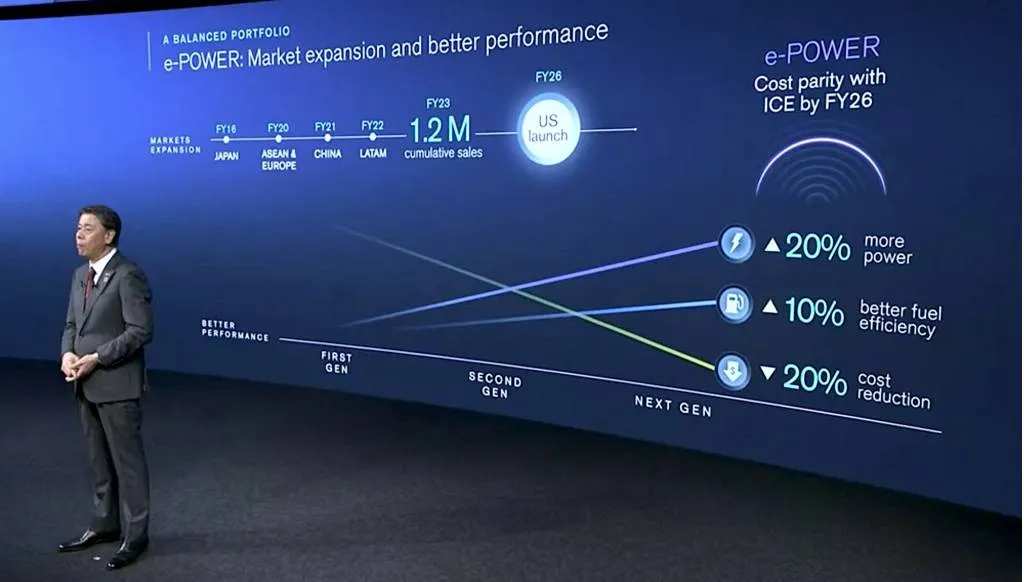
Nissan e-Power US launch schedule
Nissan’s e-Power hybrids will hit the U.S. market in 2026, according to Monday’s presentation. In the same year, e-Power is expected to reach cost parity with pure combustion engines. In its latest version, Nissan claims 20% more power, 10% better efficiency and a 20% cost reduction compared to previous versions of hybrid technology.
The automaker has already outlined that many of its models will move to a modular powertrain strategy that groups the future E-Power hybrid and EV efforts among the same common components that can even be manufactured on the same line. This strategy, introduced this year, is expected to reduce propulsion costs by around 30% compared to 2019.
Nissan currently does not offer a single hybrid or plug-in hybrid for the US market. It has already been hinted that they are on the way and that it could be so Expansion of E-Power hybrid technology to trucks– and a new parallel hybrid mode for that system, potentially making it more suitable for driving in the US. That is something Honda’s two-motor hybrid system already offers, and Nissan and Honda are considering a Strategic partnership for electrification it seems that is a possibility.
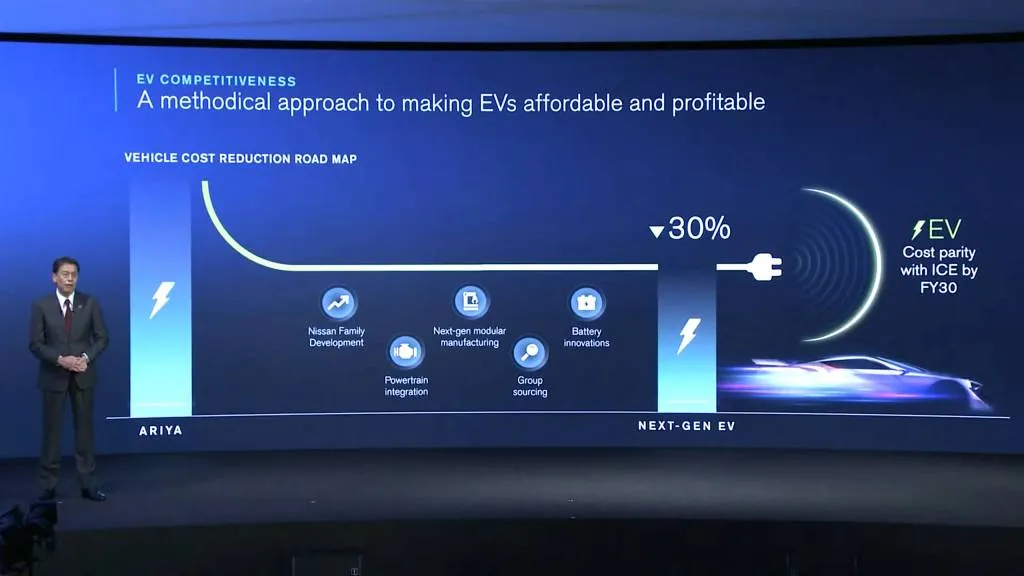
Nissan aims to reduce the cost of electric vehicles by 30% by 2030
LFP and solid state batteries, NCM with half charge time
The automaker also announced on Monday that it plans to invest more than $2.6 billion in battery capacity to equip electric vehicles with nickel cobalt manganese (NCM), lithium iron phosphate (LFP). Solid state batteries “Provide diverse electric vehicles to meet different customer needs.” All three new and revised battery types will be introduced in electric vehicles in fiscal year 2028, according to Nissan.
On the LFP front, Nissan says the development and production of such batteries in Japan will reduce battery costs in the mini-compact Sakura EV by 30%.
And in the NCM lithium-ion space, Nissan says it will halve fast charging times while increasing energy density by 50% compared to the current battery technology used in the Ariya. Nissan boasted that these batteries will be used in a new three-row electric SUV in 2028.
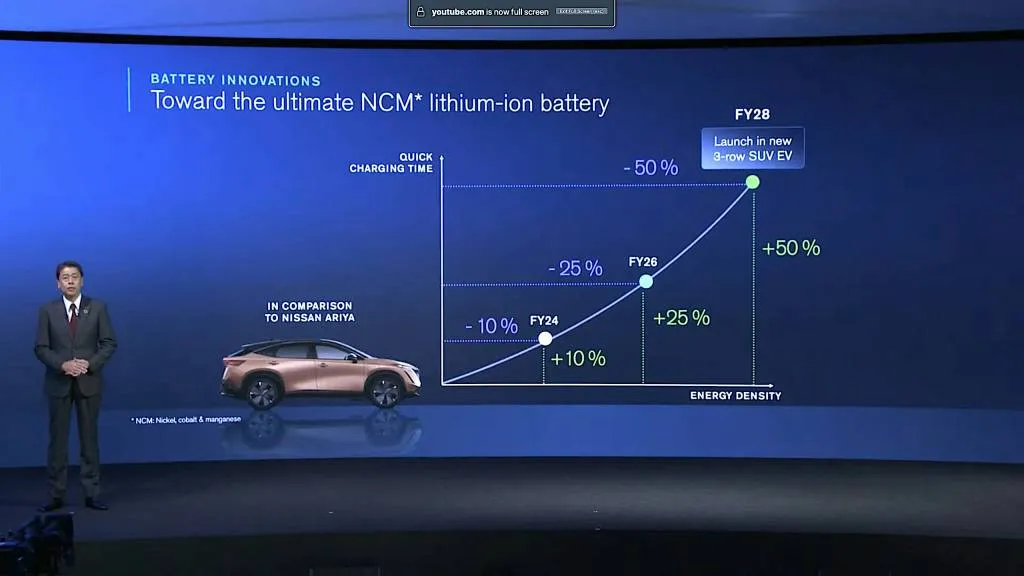
Nissan confirms next-generation NCM battery technology for 3-row SUV
The Nissan Ariya EV itself is its second electric vehicle after the Leaf and a very competitive entry into the US market, aside from the price and EV tax credit (it’s built in Japan). It offers a range of up to 304 miles, introduces a new e-4orce all-wheel drive system, introduces a simple, elegant new user interface and offers luxurious levels of ride comfort and cabin quiet.
Nissan had planned for the Leaf to be its high-volume electric car, selling millions of units, with various global derivatives in the works at one point. Although the original model was well received, the automaker’s electric car ambitions slowly faltered and it took 12 years for the model to sell a million units. Nissan may soon have another chance to increase that volume; A Successor to the current Leaf is due in 2026 or 2027.
